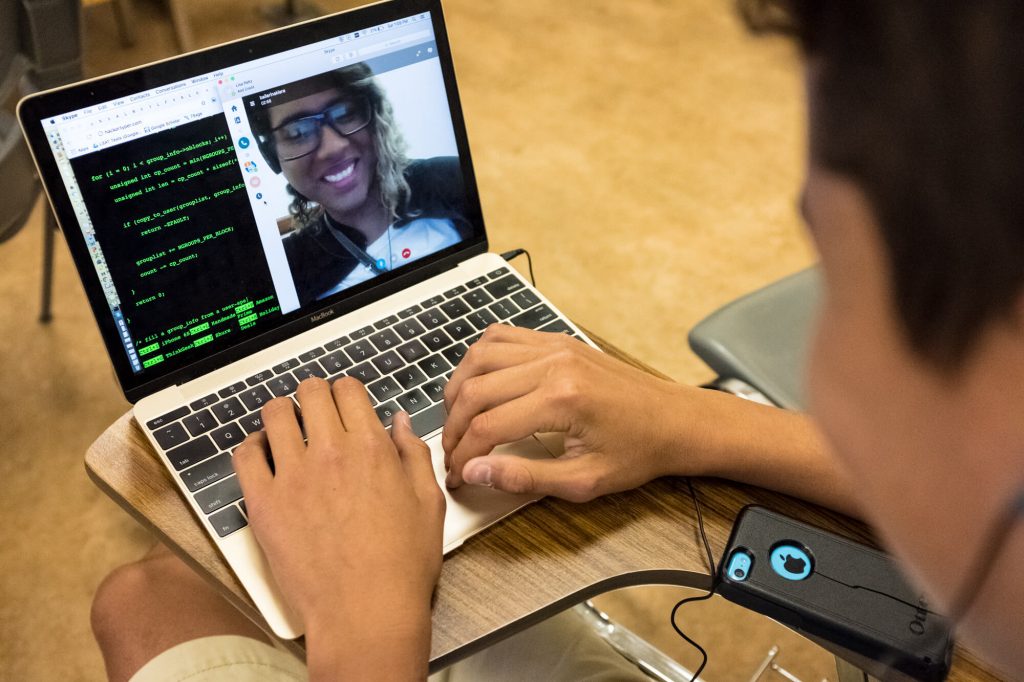Learning quantum computing is not for the faint-hearted, as it combines many technical aspects of physics, mathematics, computer science, and other fields. Thankfully, there are several different programs out there that make learning quantum computing easier, especially for younger students. One of these is Qubit by Qubit, a quantum education initiative hosted by The Coding School. Qubit by Qubit focuses on making quantum computing accessible to everyone around the world and offers many courses for students of all ages. Recently, Qubit by Qubit has launched a new program in collaboration with Microsoft Azure Quantum called the Quantum Winter School, a four-day course for high school and university students to learn about the foundations and languages of quantum computing, including Q#.
Languages of Quantum Computing
Q# is just one of the languages that quantum computers run on. According to Ali Warshay, the Coding School’s Program Director, this course marks an expansion of the languages that Qubit by Qubit’s courses teach. “In our previous courses, such as our two-semester Introduction to Quantum Computing course, we have taught students in Qiskit,” explained Warshay. Now with the Quantum Winter School, Warshay is excited for Qubit by Qubit to teach students Microsoft’s quantum programming language of Q#. As Qubit by Qubit works with students of all backgrounds, they strive to make quantum computing as accessible as possible. Warshay explains,” Given that [this upcoming] course is a four-day program, we ask that students have some prior coding knowledge so that they can hit the ground running.”. “We do pride ourselves in having minimal barriers to entry,” Warshay added, “so with some basic, prior coding knowledge, they should be able to do just fine.”
The Winter School is a completely free course and has no set maximum for student enrollment, though spots will be filled on a rolling basis. It even runs on weekends to be considerate of school and work schedules for students. The Winter School will take place over two weekends: February 4-5 and February 11-12, 2023 and will be held from 12:00-4:00 pm EST (UTC-5:00) daily over Zoom. Warshay emphasized that students from community colleges, minority-serving institutions (MSIs) and HBCUs are especially encouraged to apply. Additionally, students can apply in groups if they are from the same high school or university clubs. For group applications, she recommended that a club advisor or student leader reach out to Qubit by Qubit directly to learn more by emailing quantum@the-cs.org
A Fast Introduction to Quantum Computing
Entering the Winter School, students will participate in day-long sessions, which include a lecture and a lab. They will also have the opportunity to hear from guest speakers in the industry and attend a virtual lab tour. “It’s not a light commitment,” Warshay said. “We recognize that and appreciate students who want to take that commitment on. But in general, it is a relatively low time commitment for a course, and should help students just learn the foundations of quantum computing.” After this course, Warshay hopes the students will consider diving into more in-depth courses on the topic. She believes that this course will be a helpful method “to bring new students into the quantum fold.” And with the quantum industry facing a current talent shortage, courses like these can be a crucial solution to help sustain an expanding field.
Qubit by Qubit and Microsoft’s Collaboration
Microsoft is one of the newest collaborators with Qubit by Qubit, and with this Winter School, is helping to expand quantum education even more. As Warshay explained, the collaboration was driven by The Coding School founder Kiera Peltz, “who has known for a long time that it’s important to expand student’s breadth of knowledge in different quantum languages.” Warshay mentioned that Microsoft has been “fantastic to work with,” and she and the rest of Qubit by Qubit hope they continue to do impactful things with Microsoft, like the Winter School, in the future.
Kenna Hughes-Castleberry is a staff writer at Inside Quantum Technology and the Science Communicator at JILA (a partnership between the University of Colorado Boulder and NIST). Her writing beats include deep tech, the metaverse, and quantum technology.
